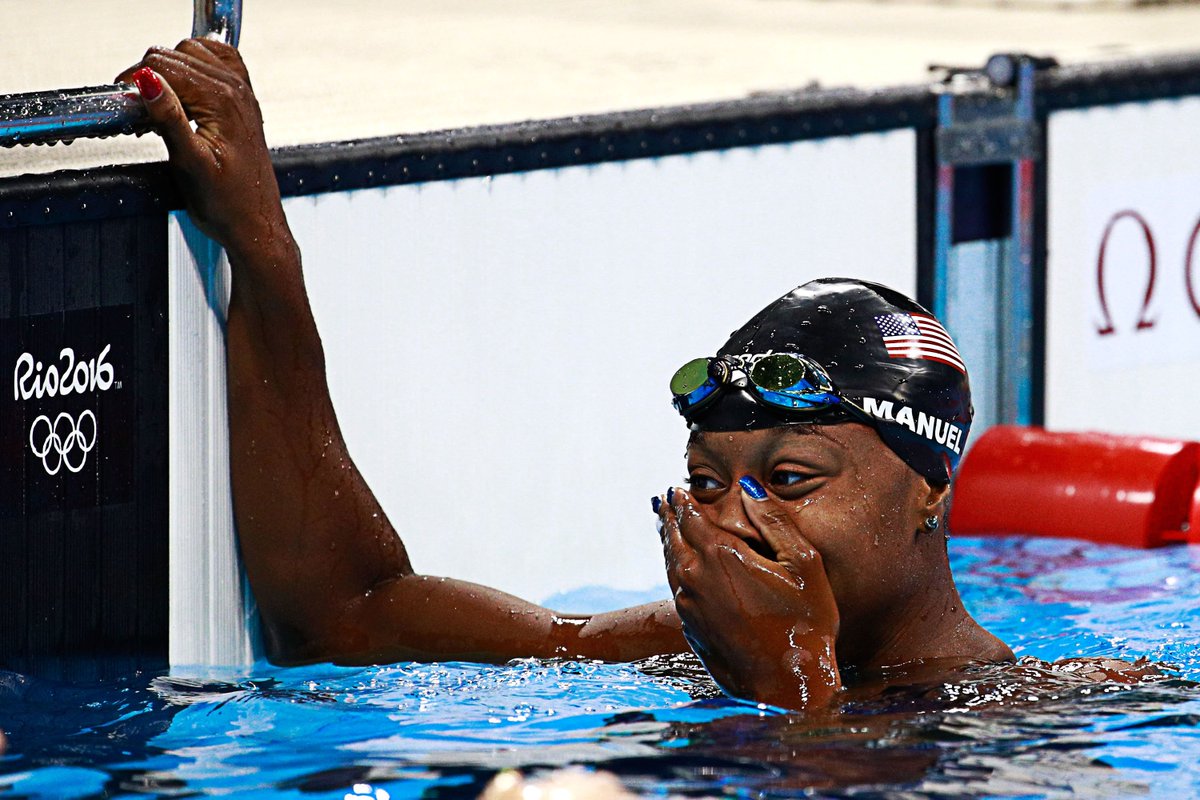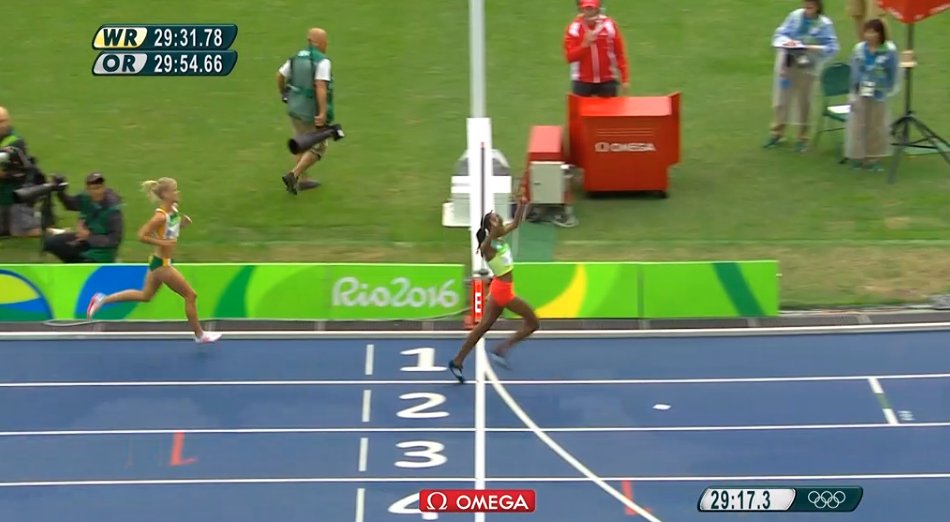Martha Karolyi on Simone Biles: 'Five years ago I couldn’t tell'
RIO DE JANEIRO – Martha Karolyi’s first words to Simone Biles after her Olympic all-around title:
“I’m so proud of you, five years ago I couldn’t tell,” the 73-year-old national team coordinator said with a wide smile, embracing the 4-foot-9 gymnast.
What Karolyi did not fathom in 2011 is now regarded as fact.
Biles is the greatest woman in the history of her sport, after following up an unprecedented three straight world all-around titles with Olympic all-around gold on Thursday evening. Her margin of victory – 2.1 points over teammate Aly Raisman – was larger than in every Olympic competition from 1980 through 2012 combined (this stat is a little misleading due to the Perfect-10 system being thrown out after 2004, but still mighty impressive).
Never mind that other women have won multiple Olympic all-around titles when worlds were every four years. And that Biles hasn’t started college.
Comparing eras is inherently tricky, but Biles brings a bag of skills with a combination of difficulty and execution unmatched by anybody in history. Some part of that is chalked up to the progression of sport. Records fall. Athletes are stronger, faster than decades ago.
Biles herself is a transformed gymnast from 2011, when Karolyi, to put it nicely, labeled her “a little bit silly” at a junior national team camp.
Biles was not considered one of the great American prospects. She finished 14th out of 24 in the junior division at the 2011 U.S. Junior Championships.
“Her bounciness was really out of control,” Karolyi said. “I didn’t know if we would be able to make this little girl to focus and to be very disciplined.”
Biles began gymnastics at age 6 (a late start) and has been coached by Aimee Boorman since age 7. Karolyi told Boorman in 2011 that they both had work to do to groom Biles into an Olympic-level gymnast.
Biles could tumble and vault, but she couldn’t swing uneven bars to save her life. She consistently fell off the balance beam at closed-door sessions at the Karolyi Ranch in New Waverly, Texas, a 45-minute drive up Interstate 45 from Biles’ home in Spring.
“We had many conversations,” Boorman said. “You don’t have to do this. You don’t have to go this route. You can go and be a collegiate champion and be famous in college. She was like, no, I want to do this.”
So Biles made the tearful, social life-sacrificing decision not to attend public high school, freeing up hours to pursue elite gymnastics.
“Before that, she was just a kid who worked out 20 hours a week and played in the gym and hung out with her friends,” Boorman said. “So it completely had to change her lifestyle.”
Karolyi and Boorman agreed in separate interviews that Biles’ improvement started showing in about one year.
“She started to understand that gymnastics is not only about throwing big tricks,” Karolyi said. “It’s about having patience and working on little things.”
Biles was too young for London 2012, not that she was competitive with any member of the Fierce Five then anyway. Biles placed third in the 2012 U.S. Championships junior division.
Then she moved up to the senior age level in 2013. Biles struggled so much in a U.S. Championships tune-up meet that she was pulled by Boorman before completing the competition. She saw a sports psychologist.
Then it all clicked. She won the first of four straight U.S. all-around titles three weeks later and began her march toward winning every major international all-around title in this Olympic cycle.
At first, the gymnastics community wondered if Biles would burn out with three years before the next Olympics. When Biles won the 2013 World title, she was the 10th different highest-finishing American at the Olympics or worlds in the last 10 years.
“People were like, she’s never going to make to the Olympics because of the curse, and you’re not going to pace her, and there’s no way you can maintain this level of excellence,” Boorman said. “Well, she maintained it, and she continued to get better through the quad. We did it. And I didn’t want to hold her back because my original thought was, what if this is the only chance she ever gets was that first worlds? So, yeah, let’s go gangbusters. Let’s try to win it. And then the next year it was like, OK, let’s keep going and see where we ended up. And we ended up here with a gold medal.”
Biles’ victory by 2.1 points on Thursday was nearly double her largest world championships margin. When Karolyi beamed at Biles 10 minutes after the medal ceremony, she was reflective.
“You think back of all those years, how everything started and how many struggles and hurdles we had to pass in order to get to this point,” Karolyi said after a starving Biles went off for a round of interviews and then drug testing. “It passes through your mind in the moment when something comes out as good as this.”
Karolyi’s praise of Biles was about as effusive as it can get, though she did stop short of saying Biles ranked above Nadia Comaneci, the first gymnast she and husband Bela helped coach to an Olympic all-around title in 1976. Karolyi is retiring after these Olympics, her 11th, and considers the two gymnasts equal bookends.
Boorman stressed that Thursday’s rout was “a cherry on top” rather than the whole sundae so many make the Olympics out to be.
“You know people say, oh, the queen’s coronation,” she said. “She has certainly proven herself the last three years as the greatest.”
Biles can prove it further this weekend. She will return for apparatus finals Sunday (vault), Monday (balance beam) and Tuesday (floor exercise). She is favored in all three.
Only one woman in any sport has bagged five golds at a single Games – East German swimmer Kristin Otto at Seoul 1988, who actually won six.
Nobody is ruling out that Rio could be the end of Biles’ career.
“Thinking about it that, potentially, this could be the last time that I ever coach her in an all-around competition, after 11 years, that’s a big deal,” Boorman said before stopping to keep from crying.
Karolyi said that Biles told her she wants to take a year off. Biles is committed to UCLA but can’t compete there after turning pro last year.
Boorman encourages Biles to get out of the gym.
“She’s been totally dedicated,” the coach said. “I just want her to love life.”
Just after 9 a.m. Thursday, Biles walked into Raisman’s bedroom in the athletes’ village after sleeping like a baby and told the 22-year-old she calls grandma that she had a pretty good feeling about the day.
“Me, too,” Raisman said.
This was the day Raisman had been waiting for. She took a two-year break after the London Games and then returned, motivated by missing a 2012 Olympic all-around medal on a tiebreaker.
Raisman, wearing her all-around silver medal, said Thursday she wasn’t sure if she would have come back at all if she had made the podium four years ago.
Now, she (and Gabby Douglas) could be a model for Biles or any other gymnast exhausted at the end of an Olympic cycle.
“I keep telling all the girls, actually, if they want to come back, just to take a break, take as much time as you want off,” Raisman said. “It has to be you that wants to come back. Take a long break, because you need it mentally.”




















